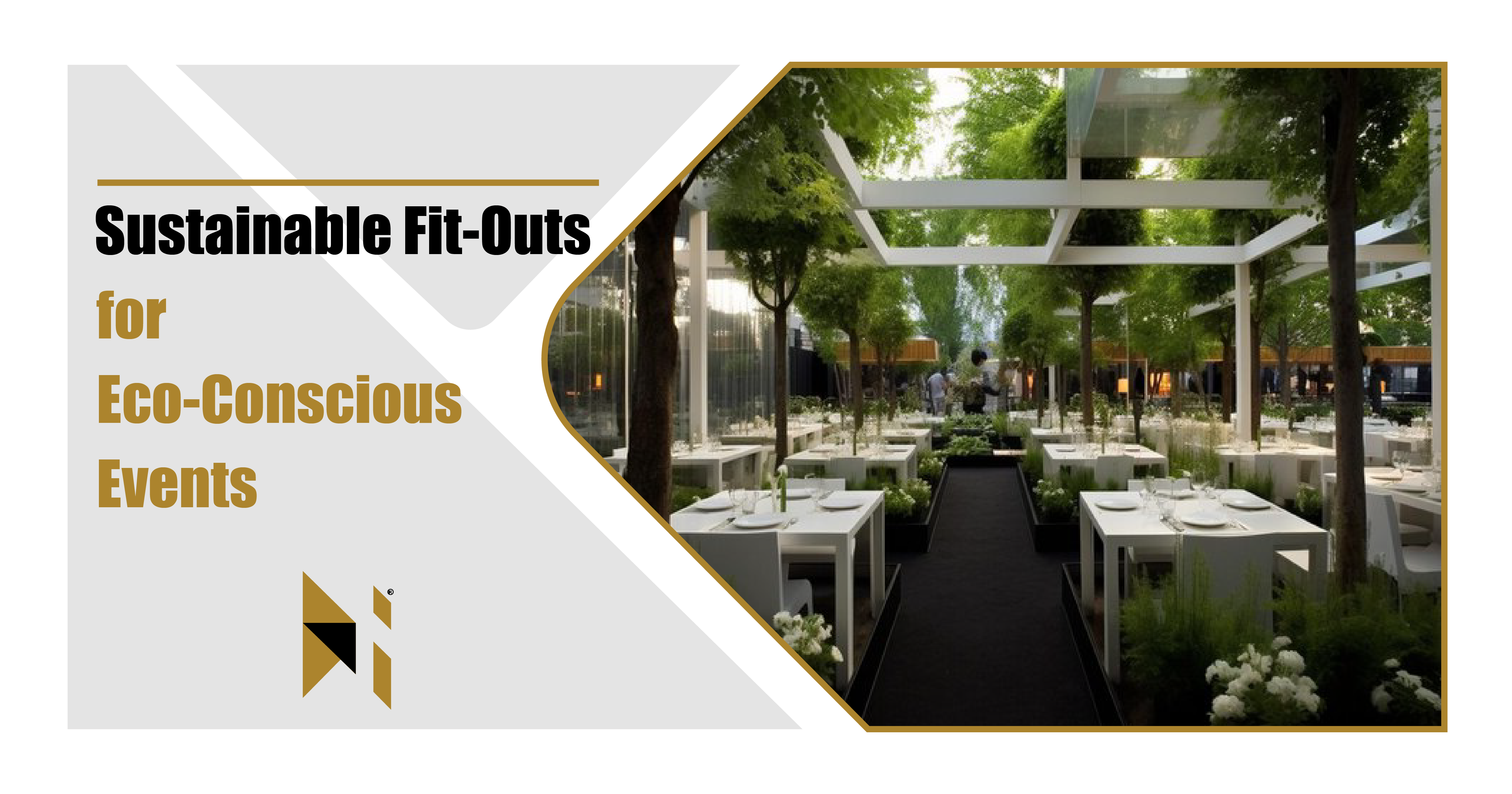In an age where environmental responsibility is more than a trend, it is a vital aspect of corporate accountability, eco-conscious events are becoming the standard. A sustainable fit-out is no longer an option but a necessity for companies that wish to demonstrate their commitment to environmental stewardship. Sustainable event fit-outs not only help reduce the carbon footprint of an event but also set a positive example for attendees. Below, we provide a roadmap for sourcing sustainable materials and implementing eco-friendly practices for your event fit-outs.
Plan with Sustainability in Mind
Start Early
Begin your planning process with sustainability as a core objective. This means setting clear goals for waste reduction, energy efficiency, and material sourcing right from the start.
Engage Stakeholders
Involve all stakeholders, including sponsors, exhibitors, contractors, and attendees in your sustainability efforts. Ensure that they understand and support your eco-friendly objectives.
Source Sustainable Materials
Certified Sustainable Wood
If you need to use new wood materials, ensure they are certified by recognized organizations like the Forest Stewardship Council (FSC), which guarantees the wood was sourced from responsibly managed forests.
Low-VOC Products
Select paints, adhesives, and finishes that have low volatile organic compound (VOC) emissions to ensure better air quality for your event and reduce harmful environmental impacts.
Reclaimed and Recyclable Materials
Look for suppliers who offer reclaimed or recycled materials for your build. This includes using recycled metal, reclaimed wood, or biodegradable composites for construction.
Design for Reuse and Adaptability
Modular Elements
Design your fit-out with modularity in mind. Modular components can be easily reconfigured and adapted for different events, significantly reducing the need for new materials.
Demountable Design
Create elements that are easy to assemble and disassemble without damage. This practice allows for components to be reused multiple times, extending their useful life and saving resources.
Rentals Over Purchases
Whenever possible, rent furniture and decor instead of buying new. This reduces waste and the energy consumption associated with manufacturing new products.
Implement Eco-Friendly Practices
Digital Over Print
Reduce paper waste by using digital signage and electronic handouts. If printing is necessary, use recycled paper and eco-friendly inks.
Waste Management
Set up a comprehensive waste management system. This includes providing recycling bins, composting organic waste, and ensuring that waste is properly sorted and processed.
Energy-Efficient Lighting
Opt for LED lighting, which consumes less energy and has a longer lifespan compared to traditional incandescent or fluorescent lighting.
Work with Green Partners
Eco-Friendly Vendors
Choose vendors and suppliers who share your commitment to sustainability. They should have established practices for reducing environmental impact and be able to provide products that meet your sustainability criteria.
Catering Considerations
For event catering, select suppliers who use locally sourced, organic, and seasonal produce. Consider offering plant-based menu options, which have a lower carbon footprint compared to meat-based dishes.
Measure and Report
Share Your Success
Communicate the results of your sustainability efforts to all stakeholders. Reporting on successes (and areas for improvement) not only demonstrates transparency but also encourages others in the industry to follow suit.
Track Your Impact
Implement methods to measure the environmental impact of your event. This can include tracking metrics such as energy consumption, waste generated, and materials recycled.
"Conclusion"
Sustainable fit-outs are an essential component of eco-conscious events. By starting with a clear plan, sourcing sustainable materials, designing for reuse, implementing eco-friendly practices, working with green partners, and measuring your impact, you can significantly reduce the environmental footprint of your events. As event planners embrace sustainability, they not only protect the planet but also enhance their brand’s reputation and appeal to an increasingly environmentally aware public. Remember, every step towards a sustainable fit-out contributes to a larger movement of conservation and responsibility that benefits us all.

